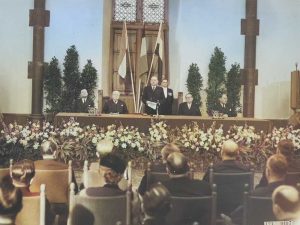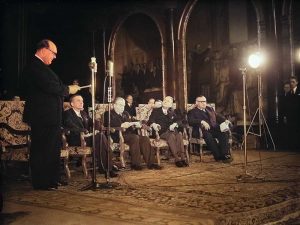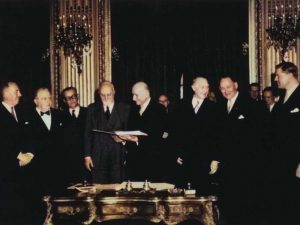At the end of the Second World War, many people were determined to create the political conditions for collaboration between France and Germany. The goal was to avoid a new war on the continent in the future.
Thus, on May 9, 1950, Robert Schuman, French Minister of Foreign Affairs, proposed the creation of a European organization. This organization would pool French and German coal and steel production, two of the leading industries of the time. The main idea was to make war “not only unthinkable but also materially impossible.”
The organization was inspired by Jean Monnet, the first commissioner for planning. This founding text in the history of European construction led to the signing of the Treaty of Paris on April 18, 1951. It founded the European Coal and Steel Community between six European states (France, the Federal Republic of Germany, Italy, Belgium, Luxembourg, and the Netherlands).


